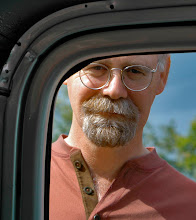 There is an interesting article in this last Sunday's New York Times magazine
There is an interesting article in this last Sunday's New York Times magazine http://www.nytimes.com/2009/05/24/magazine/24labor-t.html
entitled "The Case for Working with Your Hands" made lots of interesting observations.
The author, Matthew B. Crawford, noticed that not all jobs that require advanced formal education are either well paid or interesting and that not all jobs that require little formal education are boring or poorly paid. He described several white collar jobs that were truly awful. Sometimes it is the actual work that is awful and sometimes it is the product itself that is hard to stand behind.
Crawford now owns a motorcycle repair shop specializing in older models and speaks of the joy of the job. He knows his customers, is presented with problems with no obvious right answer, apparently has no boss, and has to solve problems daily. He communicates with a community of other mechanics who have a lot of skills and experience. And it sounds like every day is interesting.
Contrast his description of being in a traditional blue collar job with many software engineering jobs. Many programming jobs are pretty boring. Modern corporations are typically organized to isolate programmers from actual customers by having layers of program managers, sales people, customer support organizations etc. And for that matter, the customer support people are isolated from contributing to the code. It is easy under these conditions for important information to be lost and for individuals to become more and more specialized and isolated from the actual customer or problem.
The author uses his jobs as a proof point that people should seriously consider blue collar jobs. But he is kind of mixing apples with oranges. I have certainly worked in software companies where the work was rewarding, management understood the quality of the work and what it was used for and programmers met with customers on a regular basis. And I've certainly worked in entry level blue collar jobs that I would never go back to.
Bill Gates, in an interview sometime before 1992, said that his job as the company got bigger was to make its employees feel like they were working for a small company. He clearly understood that programmers do not work in a vacuum, but work better in small groups. Bill was very quotable, but many of his ideas were not translated down into the trenches. For example, in the mid-1990s, he said that Windows was designed to be Year 2000 compliant. Needless to say, there were many changes made after that to make this statement true, but it wasn't driven by his initiative.
When Windows 2000 shipped, the leader of that effort, Brian Valentine, announced that any software engineer who wished to do so could visit a field office and/or visit some customers with a sales person present. If you wanted to take him up on the offer, you put your name and area of expertise into a database and the sales offices picked who they wanted. Some people went to India, Europe or New Zealand while others stayed in the USA. I was lucky enough to visit Nashville. The sales people kept us busy and we got to hear first hand what issues customers had with their plans for Microsoft software and Windows 2000 deployment specifically. This visitation program was never repeated. There were never any required trip reports, nor was there any effort to see what issues were commonly discussed. It was great for morale, but probably little else.
Finding a career that you love and a company that you love to work at is hard. People often go to college because it is expected of them, and they major in what interests them at the moment. But young people often have broad interests and it is not altogether surprising that what interests them at the age of 18 is not the same as when they are 30.
I once attended a talk by Ray Kroc given to an MBA class. Ray had started McDonalds hamburgers when he was in his 50s and was still quite active in his 80s when I saw him. One of the students, after hearing his talk, asked him what field he would go into to make money if he were graduating from a business school that spring. Ray responded simply: there is no guarantee that you will be rich, but if you do become rich, you will have to work hard. Therefore, he would recommend a job that, when you looked back on it in the future, you would feel good about your work. The problem, he said, was to find that job. This answer didn't make the student happy, but his thoughts have certainly stayed with me over the years. And now, as a parent, I find myself torn: I've always encouraged my daughters to figure out what they loved, so they could do that and feel good about it. But there are times when I wish I'd encouraged them in directions with well paying careers. I'll just have to trust that -- like the books says -- they'll be able to "Do what you love and the money will follow."

No comments:
Post a Comment